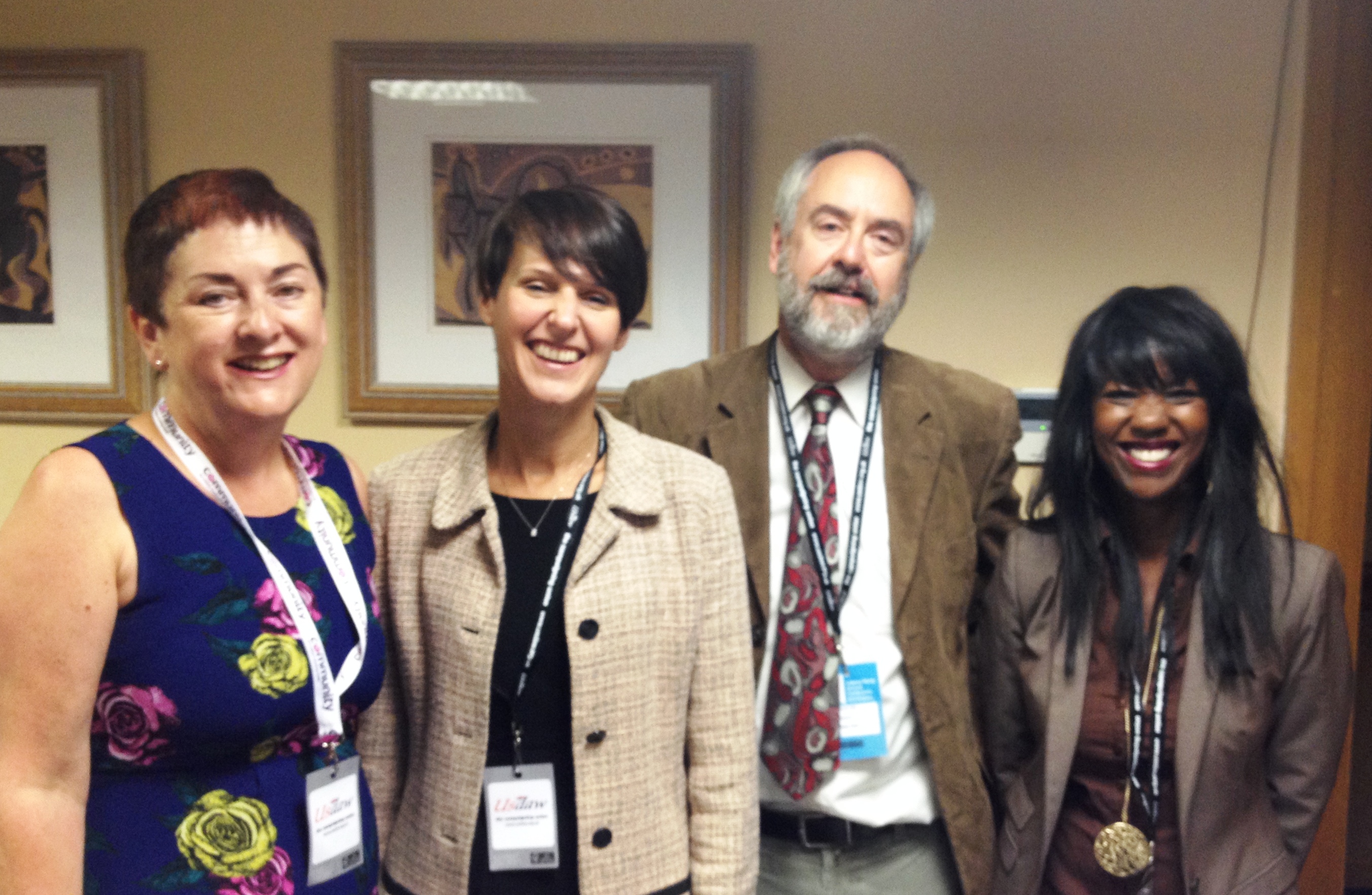
From left to right: Dr Mary Bousted, Professor Francis, Rabbi Dr Jonathan Romain and Dr Weekes-Bernard
On Monday lunchtime Accord co-hosted a fringe meeting at the Labour Party annual autumn conference with the race equality think tank, The Runnymede Trust. The meeting examined national faith schools policy and asked were ‘Faith schools at the crossroads – can society deny faith groups their own schools or afford the costs to social cohesion by having them?’. Chair of the Accord Coalition, Rabbi Dr Jonathan Romain, was joined on the panel of speakers by General Secretary of the Association of Teachers and Lecturer, Dr Mary Bousted; Head of Research at the Runnymede Trust, Dr Weekes-Bernard, and Professor of Education and Social Justice at Kings College University and Standing Adviser to the House of Commons Education Select Committee, Professor Becky Francis.
Professor Francis stated that ethnic and social mixing is the school system provided a social good, and highlighted a range of academic research that indicated that, in comparison to community schools, the state funded faith school sector was more likely to admit local children from affluent backgrounds, fewer local children entitled to free schools meals (a government indicator of deprivation), and less likely to admit children of lower ability. She argued that such ‘cream skimming’ distorted the mission of many faith schools to educate the poor, and she challenged the appropriateness of state funded faith schools excluding non-adherents which, she contended, should be ‘open to all’.
Dr Weekes-Bernard examined the role of parental choice in debate about faith schools policy. She argued there was a tension between parental choice and cohesion, and cited research showing that parents from economically deprived or minority ethnic groups were less likely to exercise such choice. She said there was a lack of demand for minority faith schools, including because most parents were chiefly motivated in wishing to obtain a place at a good local school, and that many existing faith schools were popular with families from a variety of backgrounds because the schools achieved good results. She stated that ethnically mixed schools were more popular with parents from minority ethnic backgrounds, who were more likely to send their children to further away schools in search of a less homogenous environment. She believed the current free school model was not the best one for advancing equality and that new minority faith free schools would probably work against community cohesion, but that if parents from minority ethnic backgrounds could not exercise choice like other parents then the system was broken.
Rabbi Dr Romain sought to challenge perceptions around the role of religion and belief in school age education by drawing an analogy between the legacy of gun ownership in the United States frustrating greater gun control, with the legacy of faith school provision in the UK preventing reforms to make them less discriminatory. He said ‘the status quo is familiar, but that doesn’t mean it is okay’. He said society should particularly expect schools to advance cohesion, but that the school system was instead fostering religious division. He praised reformers in other faith groups that sponsored faith schools, and argued that religious discrimination by schools was out of step with religious and secular values. He noted that faith schools could only discriminate by faith because they had special exemptions in the 2010 Equality Act, which drew attention to how such practices were out of step with mainstream values.
Dr Bousted told the meeting that Government policy was to increase the diversity of faith school providers, and noted the growth in religious academy chains that did not operate formally designated faith schools, but schools with a religious ethos. She observed that religious discrimination in school admissions was out of step with international practice, noting that the UK was only one of a small handful of countries where it was permitted among member of the Organisation for Economic Co-operation and Development. She argued that as state funded faith schools received almost all their funding from public funds, they should accept all children regardless of their background, and that non-discriminatory admission policies were not a threat to school’s religious ethos and character. She called upon teachers and prospective teachers to be freed from religious discrimination in faith school employment and recruitment, and to enjoy the same legal protections as other employees.
Last week Accord Coalition National Coordinator, Paul Pettinger, took part in a conference organised by Loughborough University’s Nationalism Network entitled ‘Building Inclusive Nations in the Age of Migration‘. He set out a range of academic studies that all found a significant positive impact from ethnic mixing in schools boosting the growth of mutual understanding and trust. He said the exclusive way that many faith schools operated validated a wider culture in the state funded education system where is was seen as ‘okay’ for schools to be seen as serving certain groups. He cited schools implicated in the Birmingham school scandal as examples of this, all of which were community schools. He argued that faith schools operating in more open and inclusive ways was not a threat to belief or identity, but instead would help create conditions in society where diversity and difference would be better accepted and respected.


